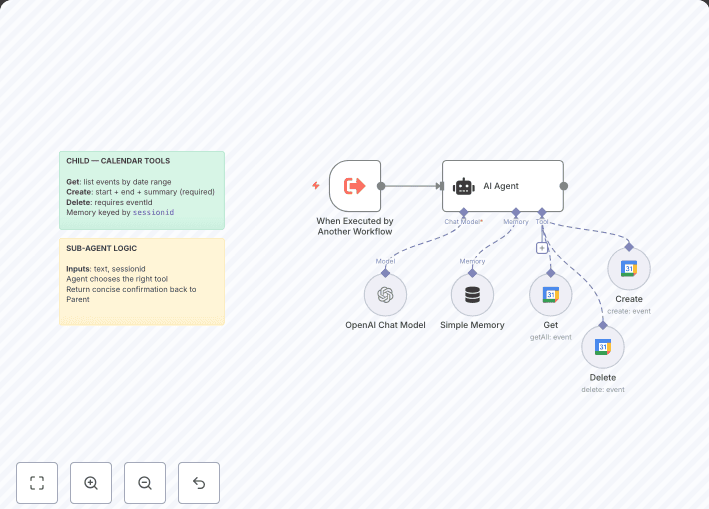Who is it for
- Customer service or support teams who want to use their Zendesk articles in other tools.
- Content/Knowledge managers consolidating or migrating knowledge bases.
- Ops/automation specialists who want Markdown versions of articles (could be adapted to Notion, Google Sheets, or any Markdown-friendly system).
How to get started
- Download the template and install it on your instance
- Set Zendesk and Airtable credentials
- Modify the Zendesk base_url and Airtable's table and base
- Run the workflow once manually to get your existing articles
- Finally, modify the Schedule Trigger (by default it runs every 30 days) and activate the workflow
Prerequisites
- Airtable base set up using this template. It includes the fields
Title, Content, URL and Article ID.
- Zendesk account with API access (read permissions for help center articles)
- Zendesk API credentials (see instructions below)
- Airtable API credentials (see instructions below)
Getting Your Credentials
Airtable:
- Sign up or log in to Airtable.
- Go to your account settings and generate a Personal Access Token (recommended scopes:
data.records:read, data.records:write).
- In n8n, create new Airtable credentials using this token.
Zendesk:
- Log in to your Zendesk dashboard.
- Go to Admin Center > Apps and Integrations > Zendesk API.
- Enable “Token Access,” and create an API token.
- In n8n, add Zendesk credentials with your Zendesk domain, email, and the API token.
How it works
1. Triggers
- Manual: For first setup, use the Manual Trigger to fetch all existing articles.
- Scheduled: Automatically runs every N days to fetch only new or updated articles since the last run.
2. Fetch Articles from Zendesk
- Calls the Zendesk Help Center API, using pagination to handle large volumes.
3. Extract and Prepare Data
- Splits out each article, then collects fields:
id, url, title, and body.
- Converts the article body from HTML to Markdown (for portability and easier reuse).
4. Upsert Into Airtable
- Inserts new articles, or updates existing ones (using
Article ID as the unique key).
- Fields stored: Title , Content (Markdown), URL , Article ID.
Airtable Template
- Use this Airtable template as your starting point.
- Make sure the table has columns: Title , Content , URL , Article ID. You can add more depending on your needs.
Example Use Cases
- Migrating Zendesk articles to another knowledge base.
- Building an internal knowledge hub in Airtable or Notion.
- Creating Markdown backups for compliance or versioning.
Service
If you need help implementing the template or modifying it, just reach out 💌


